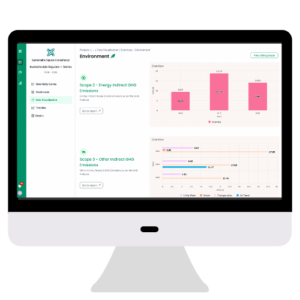
With People.
By Tech.
For Impact.
Over a Decade of Expertise in ESG, Sustainability, Responsible Investing, Carbon Management, and Social Impact
Get In TouchWho We Are

We drive systemic change through effective solutions for our ecosystems.
We support organizations to identify Environmental, Social, and Governance (ESG) risks and opportunities, and empower them to become resilient, amplify their impact, and conduct their operations in a responsible manner.
We work alongside our clients to guide their sustainability journeys and create sustainability roadmaps.
We work with our clients to help them prosper while creating shared value for all stakeholders involved. We achieve this by developing effective strategies, reporting on progress, and empowering businesses through capacity building.
What We Do
We work alongside our clients to guide their sustainability journeys and create sustainability roadmaps.
We work with our clients to help them prosper while creating shared value for all stakeholders involved. We achieve this by developing effective strategies, reporting on progress, and empowering businesses through capacity building.

Our Advisory Services
Technology
Squarely ESG Platform
Empower your businesses to go beyond their ESG goals, with cutting-edge AI powered ESG data gathering and reporting platform.
Manage, monitor and evaluate all sustainability-related performance metrics in a single online system.


